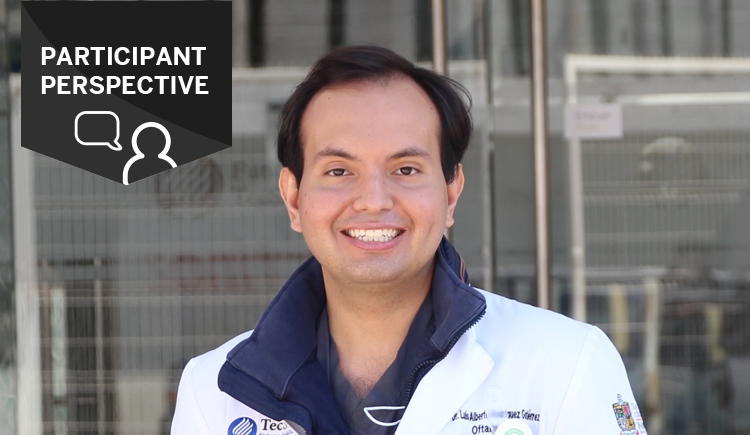
Women working in clinical research can bring real value when they serve in leadership positions. Yet they are often underrepresented in this area—from being passed over for promotions to finding obstacles hampering their access to important funding sources and other important resources in the clinical research space, according to Jamie M. Robertson, PhD, MPH, director of innovation in surgical education through the Department of Surgery at Brigham and Women’s Hospital and associate co-director of Harvard Medical School’s postgraduate Global Clinical Scholars Research Training program.
Many studies in recent years have explored this gender inequity. For instance, findings published in Contemporary Clinical Trials reveal that women are much less likely than men to be first authors on published studies. Another study in the Journal of the American College of Cardiology finds that when women lead clinical trials, they tend to recruit more diverse participants than their male counterparts. This means when women are underrepresented in leadership roles, the research field can suffer as a result.
Challenges Facing Women in Clinical Research
To be successful in shifting the odds to help women achieve their clinical research career aspirations, there are a number of challenges that must be overcome. For instance, women need to find a way to balance their personal and professional responsibilities. “It can be very challenging for women to feel like they have to manage everything,” Robertson says. Clinical research positions can be quite time-intensive and demanding, which can be especially stressful for women who are raising children or caring for aging parents at the same time. This can lead to burnout.
In addition, the COVID-19 pandemic led many people to relax their boundaries between home and work. For women, finding a way to reestablish their limits can be particularly difficult, she says. “For instance, during COVID, I started expanding the hours I met with colleagues to include evenings and weekends since I wasn’t going anywhere,” she says. Once the boundaries blurred between home and work, Robertson admits that she found it hard to build them again.
Further complicating matters is that colleagues can be located in different time zones, making it difficult to keep meetings within strict work hours. “You want to be flexible and available to people and you want opportunities to be available to you. But it can be difficult to figure out how to do that in regular hours, so that you can have your home life as well,” Robertson says.
Then there’s the competition that women in clinical research positions face on the job. “There’s pressure on everyone to be getting grants, to be conducting research, and to be staying ahead of everyone else. It always seems like there is more you should be doing, yet there is no designated time to get everything done,” she says.
Finally, for some women, fear of saying no can cause them to take on extra busy work without extra compensation. While such tasks usually don’t further a woman’s career, many often are afraid to say no or turn down opportunities for fear of being labeled as difficult, she points out. This means that they may find themselves balancing even more work than they have to do, without any benefit to show for their effort.
How Women Can Position Themselves for Clinical Research Roles
While the obstacles women face can be high, there are many ways women can overcome them and position themselves to succeed in the clinical research field.
“Many women have become adept at figuring out how to manage a number of competing priorities. These skills can be essential to help them succeed at work while still caring for their family,” Robertson says. “They can figure out how things can fit together and how to work really efficiently.”
She also points out that women need to find a way not to be afraid to ask for opportunities. “The piece of advice I often give people is that if you don’t ask, the answer is always no,” she explains. “A lot of people, myself included, feel like if you work hard enough, then eventually people will ask you to do the things that you want to do or will notice you because you did such good work,” Robertson says. But more often than not, this just is not true.
“If you want something, you have to ask for it. Just tell people you are interested in being part of a group or that you want to be considered for a position. You may not get what you want right then, but at least people will know you are interested and will think of you when an opportunity arises,” she stresses. Women often are afraid to ask for anything because they fear they aren’t good enough or they don’t deserve it; yet when they make their aspirations known, suddenly more opportunities are offered to them.
Women can also look to mentors or other colleagues for support. “They can pick a mentor to advise them and help them with their professional growth,” Robertson says. “A mentor can share how they moved up the career ladder and can offer insight into what you need to do to promote yourself well,” she adds. Many women have trouble with self-promotion because they don’t want to brag. But if you don’t tell people what you can do, they won’t know it.
“One very encouraging thing is that more women have gotten into careers in research and clinical research in recent years and some are making real progress climbing up the career ladder effectively,” she says. “As a result, these days there is more support, more mentorship, and more sponsorship available. Women can lean on these resources to help them navigate the demands of the field and pursue the opportunities that exist in order to achieve their career goals.”
-
Sources
Robertson, Jamie M., PhD, MPH, Director of Innovation in Surgical Education. Department of Surgery, Brigham and Women’s Hospital; Associate Co-Director, Harvard Medical School’s Postgraduate Global Clinical Scholars Research Training program.
Zoom interview, December 2023.
https://postgraduateeducation.hms.harvard.edu/faculty-staff/jamie-robertsonRawlley B, et al. Contemp Clin Trials. 2023; doi:10.1016/j.cct.2023.107081
https://pubmed.ncbi.nlm.nih.gov/36626965/Yong C, Suvarna A, Harrington R, Gummidipundi S, Krumholz HM, Mehran R, Heidenreich P. Temporal Trends in Gender of Principal Investigators and Patients in Cardiovascular Clinical Trials. J Am Coll Cardiol. 2023 Jan 31;81(4):428-430. doi: 10.1016/j.jacc.2022.10.038. PMID: 36697143.
https://pubmed.ncbi.nlm.nih.gov/36697143/
https://www.jacc.org/doi/epdf/10.1016/j.jacc.2020.08.062


